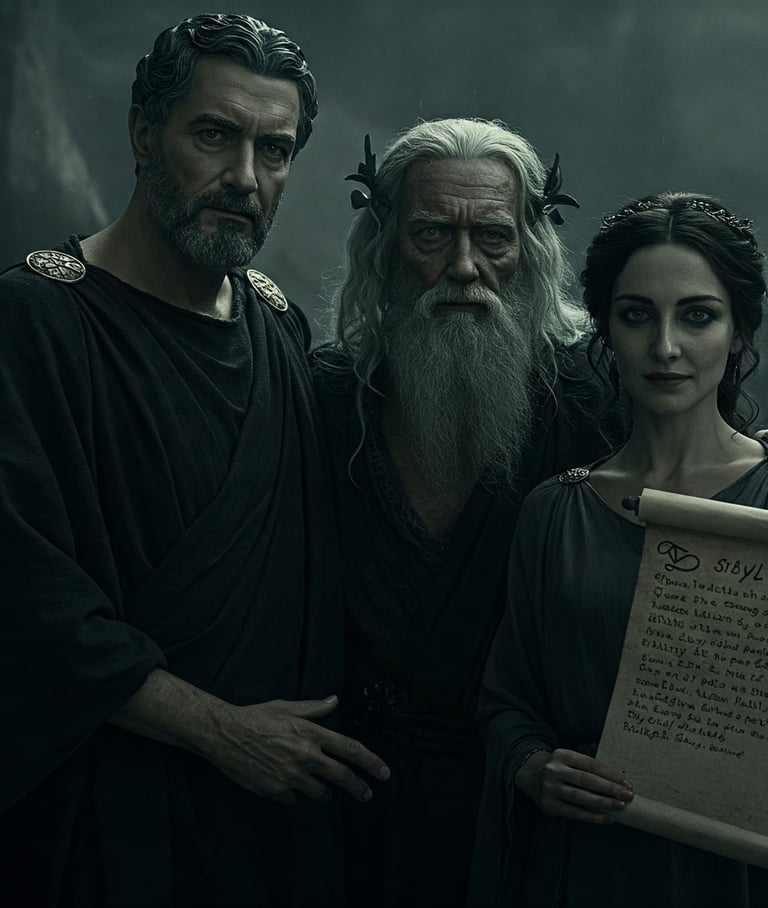Get to know us...


About Pluto
Pluto, while still the formidable god of the underworld, is not merely a figure of dread. He is a complex being, bound by his love for Proserpina, even if their union was born of abduction. His reign, since eternity, though absolute, is also a lonely one, a stark contrast to the bustling Olympus. This isolation lends him a tragic air, a sense of longing that tempers his stern authority, making him a more human, if still divine, figure.
About Sibyl
Sibyl emerges not just as a priestess but as a deeply human conduit to the divine. Her encounter with Aeneas reveals the immense burden of her prophetic gift. She is aged beyond her years, her body worn by the weight of countless visions and pronouncements. Yet, amidst the divine frenzy that seizes her, moments of her own fear and weariness flicker through, reminding us that even those closest to the gods bear the frailties and emotions of mortal existence. Her guidance, though essential, comes at a personal cost, highlighting her as a figure caught between the human and the divine.
About Charon
Charon is more than just a ferryman of the dead; he embodies a weary and somewhat jaded acceptance of his grim duty. His gruff demeanor and the way he barks at the approaching shades reveal a personality shaped by endless processions of souls. He's not a fearsome demon, but a figure worn down by the sheer volume of human lives ending. His concern for proper burial rites and his reluctance to ferry the unburied Aeneas highlight a sense of order and adherence to the rules of his somber trade, a job he performs with a world-weary diligence that feels distinctly, and perhaps surprisingly, human.
